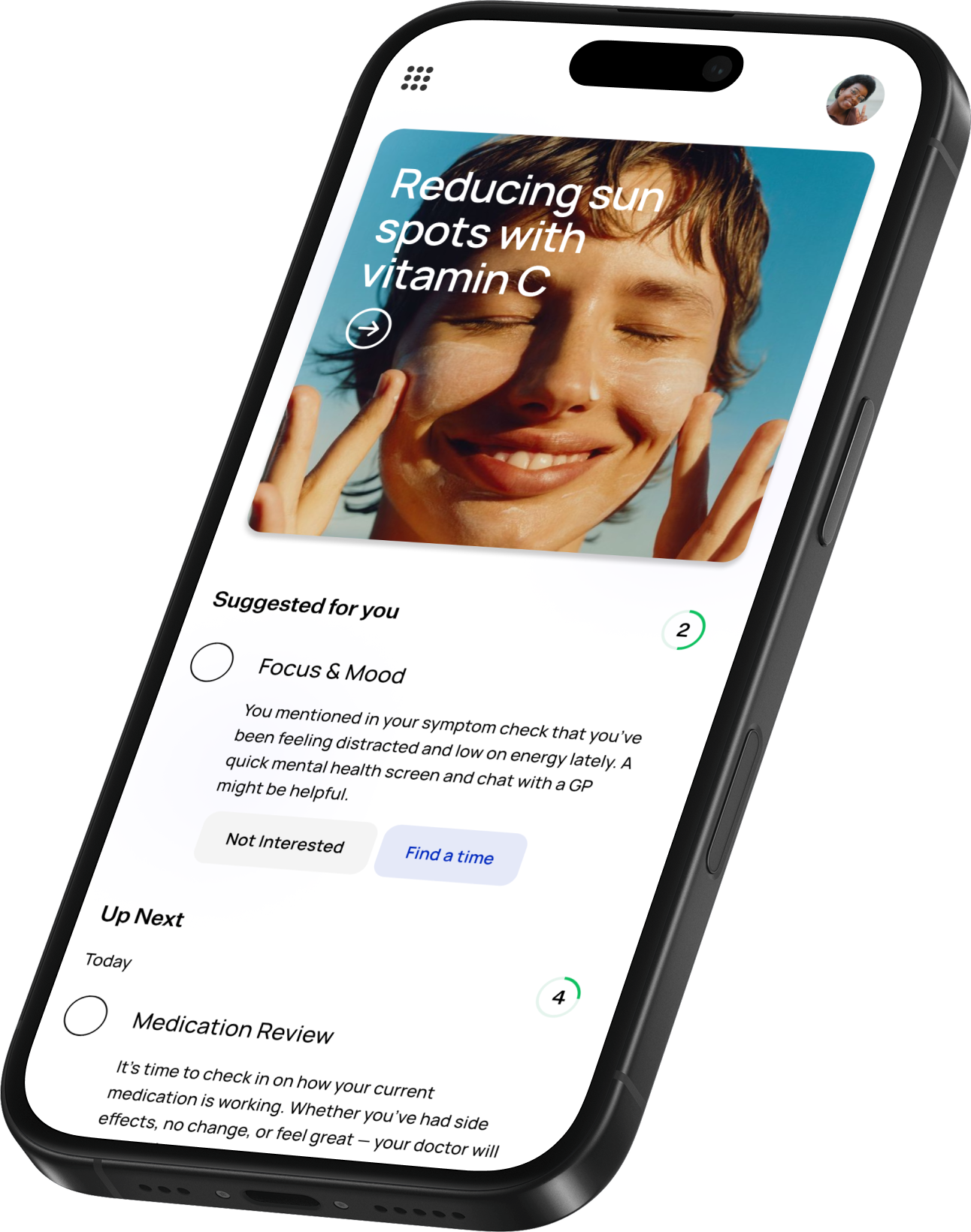Who is eligible for bulk billing? Your Guide to Understanding Who's Eligible

What is bulk billing in Australia?
Bulk billing is a payment method under the Medicare system.It allows doctors to bill Medicare directly for services. This means patients often pay nothing out-of-pocket.
Understanding who qualifies for bulk billing is crucial. It can significantly impact your healthcare expenses. Eligibility often depends on your Medicare status and the policies of your healthcare provider.
Medicare is Australia's universal healthcare system. It provides access to a range of medical services. To benefit from bulk billing, you must meet certain Medicare eligibility requirements.
These requirements include being an Australian citizen or permanent resident. Some visa holders may also qualify. It's important to check your status to ensure you meet these criteria.
Bulk billing doctors play a key role in this process. They decide whether to offer bulk billing based on their policies. Some prioritise specific groups, like pensioners or children under 16.
Not all services are covered by bulk billing. Some may require a co-payment. It's wise to confirm with your healthcare provider before your appointment.
Bulk billing services are more common in cities. Rural are as may have fewer options. This can affect your choice of healthcare provider.
The Medicare Benefits Schedule lists services covered byMedicare. It also details associated fees. Getting to know these rules can help you understand your entitlements.
Bulk billing can make healthcare more accessible. It reduces costs for eligible patients. This is especially beneficial for low-income individuals and families.
The availability of bulk billing services varies. It can influence your healthcare decisions. Knowing your options can help you avoid unexpected expenses.
Some clinics offer mixed billing. This means only certain services or patients are bulk billed. It's important to inquire about this when booking an appointment.
Understanding bulk billing eligibility empowers you. It helps you make informed healthcare choices. This guide will explore the criteria in detail, ensuring you are well-prepared.
Understanding Bulk Billing Eligibility
Bulk billing is a critical aspect of Australia’s healthcare framework. It helps minimise the financial burden on patients. However, understanding who can access it requires knowledge of specific eligibility criteria.
Bulk billing eliminates many out-of-pocket expenses for patients. Doctors directly bill Medicare for services provided, with zero cost passed to the patient, usually. The decision to bulk bill depends on the doctor and the policies of their practice.
Patients need to be aware of their rights under this system. The criteria often involve a mix of healthcare provider discretion and government guidelines. Knowing these factors helps patients get the services they need without worrying about money.
Several groups are regularly considered for bulk billing. This typically includes children under 16, pensioners, and healthcare cardholders. Providers often prioritise these populations due to their specific healthcare needs.
The Australian Government offers incentives to encourage bulk billing. This is especially true for services given to at-risk groups.
Providers may receive higher Medicare rebates for bulk billing eligible patients. Despite these incentives, not all medical services are bulk billed. Some consultations might require out-of-pocket payments. Patients should always verify billing practices before attending a medical appointment.
The availability of bulk billing can significantly affect healthcare access. It is more prevalent in metropolitan areas compared to rural regions. Patients should explore all their options to find suitable providers offering these services.



Importance of Bulk Billing in Healthcare
Bulk billing is pivotal in maintaining healthcare affordability. It ensures that financial barriers do not restrict access to necessary medical care. This, in turn, promotes better health outcomes across populations.
Affordability is key when accessing healthcare. Bulk billing addresses this issue by allowing free access to essential services. Many Australians benefit from this model, emphasising its importance in public health.
Bulk billing also simplifies healthcare transactions. By bypassing direct payment, it reduces administrative workloads for clinics. This helps focus healthcare resources more on patient care rather than financial logistics.
Its importance shines through in cases with vulnerable populations. Pensioners, children, and those on healthcare cards benefit significantly. Bulk billing helps these groups get the healthcare they need without worrying about costs.
The financial predictability it offers is crucial. For families and individuals managing tight budgets, knowing upfront costs are zero provides peace of mind. It allows them to manage healthcare alongside other vital expenses.
Moreover, bulk billing promotes regular health visits. When costs are reduced, patients are more likely to seek timely care rather than delay due to expense concerns. This leads to earlier detection and management of health issues.
Who is Eligible for Bulk Billing in Australia?
Eligibility for bulk billing largely revolves around Medicare. People who qualify usually meet specific legal and residency rules. Meeting these Medicare eligibility requirements is the first step for access.
Medicare serves as the backbone of bulk billing. Being enrolled in Medicare is crucial for accessing bulk billing services. Australians should ensure their Medicare details are up-to-date to facilitate this process.
Bulk billing eligibility extends beyond Medicare status. While it starts with being part of the system, other factors influence eligibility. Patient demographics, such as age or financial status, might impact access.
Children under 16, pensioners, and healthcare cardholders often find easier access. Many providers prioritise these groups, reflecting policy guidelines and social welfare goals. It aligns with broader objectives to support vulnerable populations.
Specialists sometimes offer bulk billing under certain conditions. Even if not standard, patients with specific chronic diseases might receive consideration. This decision varies widely depending on practice policies.
Checking individual provider policies is vital. Some offer full bulk billing, while others apply it selectively. Patients should always inquire ahead to avoid unexpected charges.
Bulk billing, however, is not universal. It’s important to understand there may be services not covered. Patients should diligently confirm the conditions with their healthcare providers.
Medicare Eligibility Requirements
Eligibility for Medicare is the cornerstone of bulk billing.Becoming eligible requires meeting certain residency and citizenship criteria.It’s essential for anyone seeking to engage with bulk billing services.
Most Australian citizens qualify for Medicare. This coverage is extended to permanent residents and some visa holders as well. These groups encompass the majority who can access publicly funded healthcare services.
The process of enrolling in Medicare is straightforward.Applicants must show proof of who they are and where they live.
It is important tokeep your Medicare information up to date. This helps you avoid any breaks inyour access to care.
Medicare’s scope of coverage is broad. It includes most GP services and essential hospital treatments. However, it’s important to verify specific coverages depending on individual healthcare needs.
Those on temporary visas can apply under certain conditions.Temporary migrants and international workers may qualify. Each category might come with unique stipulations for Medicare access.
Certain healthcare settings can impact eligibility. Public hospitals often integrate Medicare billing more seamlessly than private settings. This is due to existing healthcare policies favoring public healthcare access.
Patients should regularly check their Medicare information.This practice ensures they remain eligible and are aware of any changes.Keeping documents updated can help prevent service interruptions.
Special Considerations for Specific Demographics
Understanding how special demographics fit into bulk billingis important. Some groups always get more priority with these services.
Providers often alignwith government incentives for coverage.
Pensioners often find themselves in the first line of bulk billing. Healthcare providers view them as a key demographic. Their financial vulnerability typically encourages more accessible billing practices.
Children under 16 are another crucial group. Their healthcare needs are often significant and ongoing. Many practices offer full bulk billing to ensure their continuous healthcare support.
Healthcare cardholders benefit similarly. Holding a healthcare card often facilitates free access to medical services. It shows financial help and matches the goals of bulk billing.
Providers might sometimes see veterans and indigenous populations as special cases. These groups have specific health issues and social considerations. Bulk billing is one way to enhance their healthcare access without adding financial strain.
Chronic illness also alters the eligibility landscape.Patients with chronic conditions might receive tailored billing solutions.Addressing their extensive healthcare needs is critical for health equity.
Finally, healthcare seekers under financial hardship can seek consideration. Discussing circumstances with providers can lead to financial accommodations. This mutual understanding supports equitable access to necessary medical care.
Learn How Bulk Billing Works

How to Find Bulk Billing Doctors
Finding bulk billing doctors is a step for many Australians. Knowing where and how to look influences healthcare experiences. Well-informed searches save time and clarify eligibility early on.
Healthdirect is an invaluable online resource. This website guides Australians to healthcare practitioners, including bulk billing doctors. Searching by location simplifies finding suitable providers.
The site’s direct links to practitioners offer rich details. These links include whether they offer bulk billing. This transparency is crucial for planning healthcare engagements efficiently.
Using Medicare’s official website is another tactic. The site includes details on healthcare services and providers. Medicare provides updated bulk billing information regularly.
Local community networks can offer insights too. Word of mouth and community forums highlight lesser-known clinics. Personal recommendations often uncover top-tier services based on others’ experiences.
Physician directories curated by insurance bodies are also helpful. Some private insurance entities provide lists of practitioners with financial agreements. These lists sometimes include bulk billing options, widening healthcare access.
Bulk billing appointments available
Understanding bulk billing eligibility is vital for managing healthcare costs. Accessing these services ensures a smooth healthcare experience. Patients need to stay informed about available options.
With the complexities surrounding healthcare billing, knowledge empowers. Patients who understand their rights and available services can make better choices. Bulk billing, when accessed appropriately, can significantly ease financial burdens.
Editorial Standards
Notice something that doesn’t look right? Let us know at support@abbyhealth.app
















